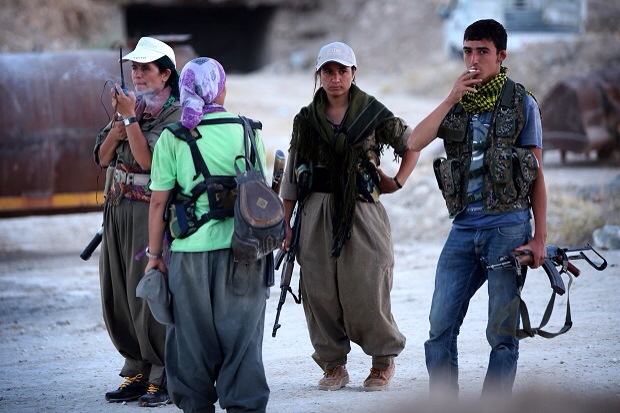That there are just two weeks now until MPs return from summer recess to discuss Britain’s response to the events in Iraq, Palestine and Syria will give Downing Street some hope that a recall of Parliament is now unnecessary. That as may be, but the new British stance outlined by David Cameron and Michael Fallon yesterday would be the subject of an urgent statement and lengthy debate were the Commons sitting. Events and British involvement are changing fast and the legislature is getting no more opportunity to probe what the executive is up to than the rest of us.
This morning on BBC Breakfast, David Cameron tried to clarify what he meant:
‘I want to be absolutely clear to you and to families watching that Britain is not going to get involved in another war in Iraq, we are not going to be putting boots on the ground, we are not going to be sending in the British army. Yes we should use all the assets that we have – our diplomacy our political relationships, our aid, the military prowess and expertise that we have to help others.
‘We should use these things as part of a strategy to put pressure on Islamic State and to make sure this terrorist organisation is properly addressed and it cannot cause mayhem on our own streets.’
But though Michael Fallon was extremely helpful yesterday in explaining Britain’s increased involvement in Iraq, making the case for a lengthy engagement of whatever kind will take more than a newspaper article. And at some point MPs may begin to wonder whether they should have been consulted before the RAF became as involved as it has, or before Britain armed the Kurds. Others will argue that Parliament’s consent is not required for these sorts of actions. But it’s scrutiny surely should be.







Comments